Lost boys: Thousands of child soldiers remain trapped in South Sudan bush camps
Despite a peace deal holding in the war-ravaged country, nearly 20,000 children remain in rural military bases with aid agencies warning that even those who are freed are vulnerable to recruitment

Every night when Thomas, 13, goes to sleep the screams of the people he was forced to burn alive two years ago punch through his nightmares.
He was just 11 years old when rebel forces in Yambio, South Sudan, gave him a torch and told him to set fire to a family’s hut.
Just a few months previous to that, the little boy had been abducted at gunpoint from a nearby farm by fighters in the South Sudan Liberation Movement (SSLM), a rebel group which later signed a peace deal and joined the government forces.
But it has taken until this week for Thomas to finally be freed.
He was one of 119 girl and boy soldiers who were officially released on 12 February, which coincidentally marked Red Hand Day – drawing attention to child soldiers.
Local authorities, together with the United Nations’ child agency and other human rights groups, hope to use a tense five month truce currently holding in the war-ravaged country to free a staggering 19,000 children like Thomas believed to still be in military camps. But with clashes still flaring in parts of the country, the economy in tatters and a hunger crisis on the horizon, many fear children will only continue to be lured into the myriad armed factions unless there is proper intervention now.
“They gave me the fire, they said go and burn those people in that hut, so I went and I lit the grass [roof],” says the little boy, his shoulders hunched, as he sits dwarfed by a plastic blue chair.
“Then it started burning. I heard the people screaming. From the voices, I thought there must be five people in there,” he adds, his voice trailing off.
He explains how he was told if he did not follow orders he would face a similar fate, and so for two years was forced to commit horrific acts of violence.
“They shot dead one boy in front of me because he refused to do the work. I was worried they would do the same thing back to me if I refused anything.”
Children have long been used by all the warring factions in South Sudan’s devastating five-year civil war, which has killed more than 400,000 people, including more than 2,000 children, and sparked one of the world’s worse humanitarian crises.
The children are often abducted from their homes or lured into recruitment with promises of rank and wealth by armed groups who see them as an expendable force.
In the isolated rural bush camps, they are brutalised, brainwashed, beaten and forced to take drugs. Many of the child soldiers The Independent has spoken to say they were used as cannon fodder on the frontline, or deployed as spies to watch rival armed groups. They were taught to assemble and disassemble rifles, and patrol the surrounding areas. Many of the girl soldiers are raped and married off to the fighters.
This year the UN hopes that a lull in fighting, due to a peace deal brokered in September between South Sudanese president Salva Kiir Mayardit and rebel factions, will finally allow all sides to release their children.
There have been positive signals: the South Sudanese government agreed last autumn to sign a UN treaty committing to end the recruitment and use of children in armed conflict. Unicef says that since last February at least 1,000 children have been released by various groups.
But despite assurances child recruiting has ended, there are still thousands of soldiers like Thomas who have yet to be freed from military camps.
Meanwhile, both South Sudan’s official army and the opposition’s forces confusingly deny the use and recruitment of child soldiers.
Brigadier General Santo Dominic Chol, the army’s deputy spokesperson, tells The Independent that children seen with guns in government-held areas are likely cattle herders or youths protecting their communities.
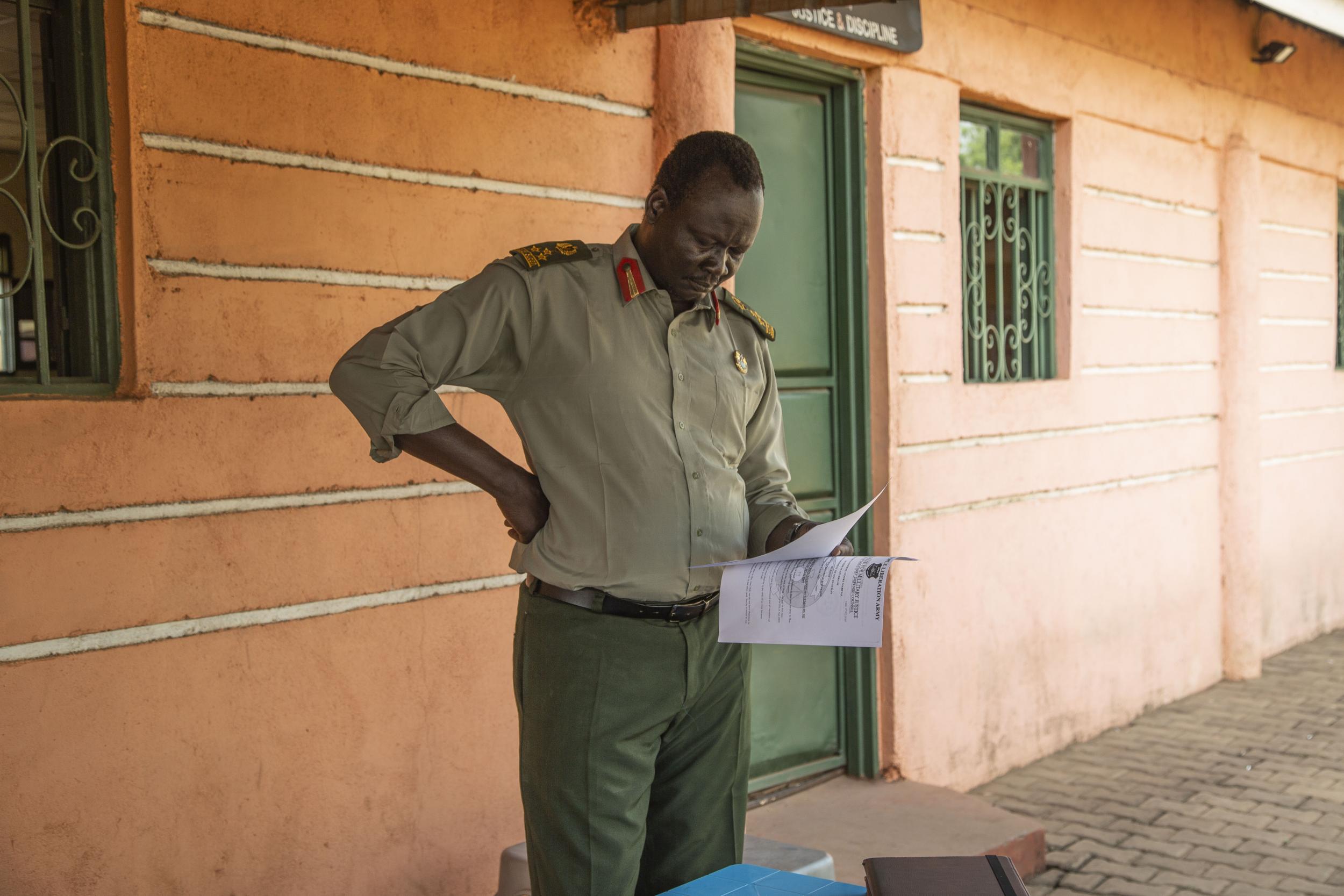
“We don’t have child soldiers,” he says from the capital Juba.
“Within [our forces] there is a huge department for child protection that works in collaboration with Unicef and other stakeholders during recruitment so that minors are never enlisted… But now there is no more recruitment in the country. We are no longer recruiting anybody,” he says.
Colonel Lam Paul Gabriel, a spokesperson for the opposition forces, issues a similar denial.
“I can tell you clearly that the SPLA IO [opposition forces] does not recruit kids. Those children in our controlled areas, they are there to protect cattle and their families,” he says, adding that it is “unfortunate” they are presumed to belong to the opposition army.
Aid agencies working on supporting and rehabilitating former child soldiers warn that, even if children are sent home, with the current instability many are subsequently vulnerable to re-enlistment.
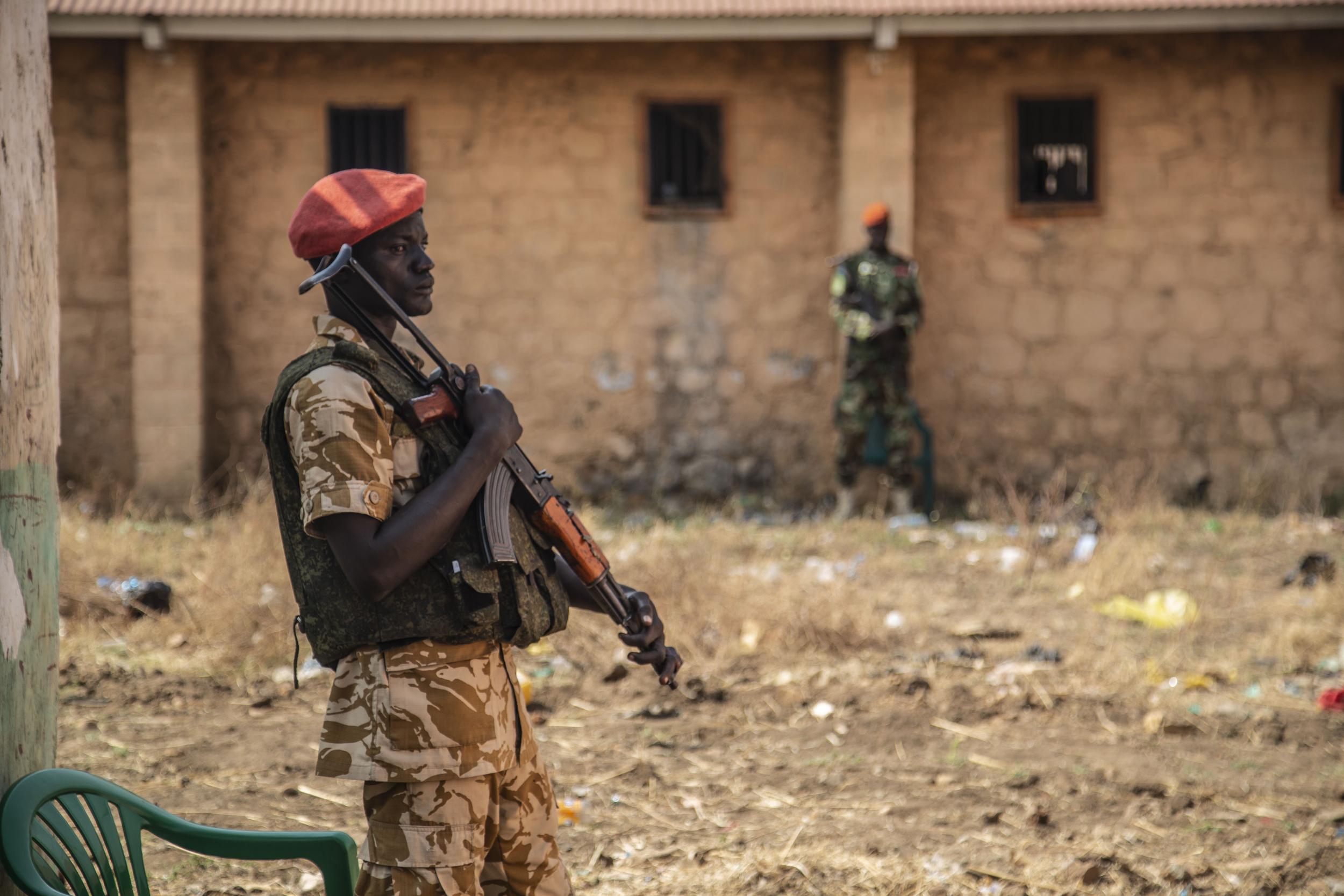
Case workers at Veterinaires Sans Frontieres (VSF), which runs vocational training programmes for former child soldiers in the remote town of Pibor, northeast of the capital, says up to a quarter of the children released end up back in military camps, after receiving training and aid packages.
The training is supposed to help the children re-enter society and offer them an alternative source of funds. But the problem is trying to keep them in the programmes after years of indoctrination and trauma.
“While there is no active recruitment of children since the peace deal was signed, we would say nationwide around 25 per cent who are released end up returning to the camps,” VSF’s Wani Richard tells The Independent from Pibor.
“Around 20 or so have returned from the 300 we have personally seen released,” his colleague Joseph Naythu adds.
It is this phenomenon that Unicef is trying to tackle with a monitoring programme that offers former child soldiers three months of vocational training in skills like tailoring, carpentry and welding before they are then monitored for three years by social workers.
In a dirt-track playground in Yambio, Thomas and other recently freed children line up to start the process, beginning with receiving official release certificates – documents the authorities hope will at least provide some safeguard against their redeployment. They are then given a medical and psychological assessment before leaving with an aid package.
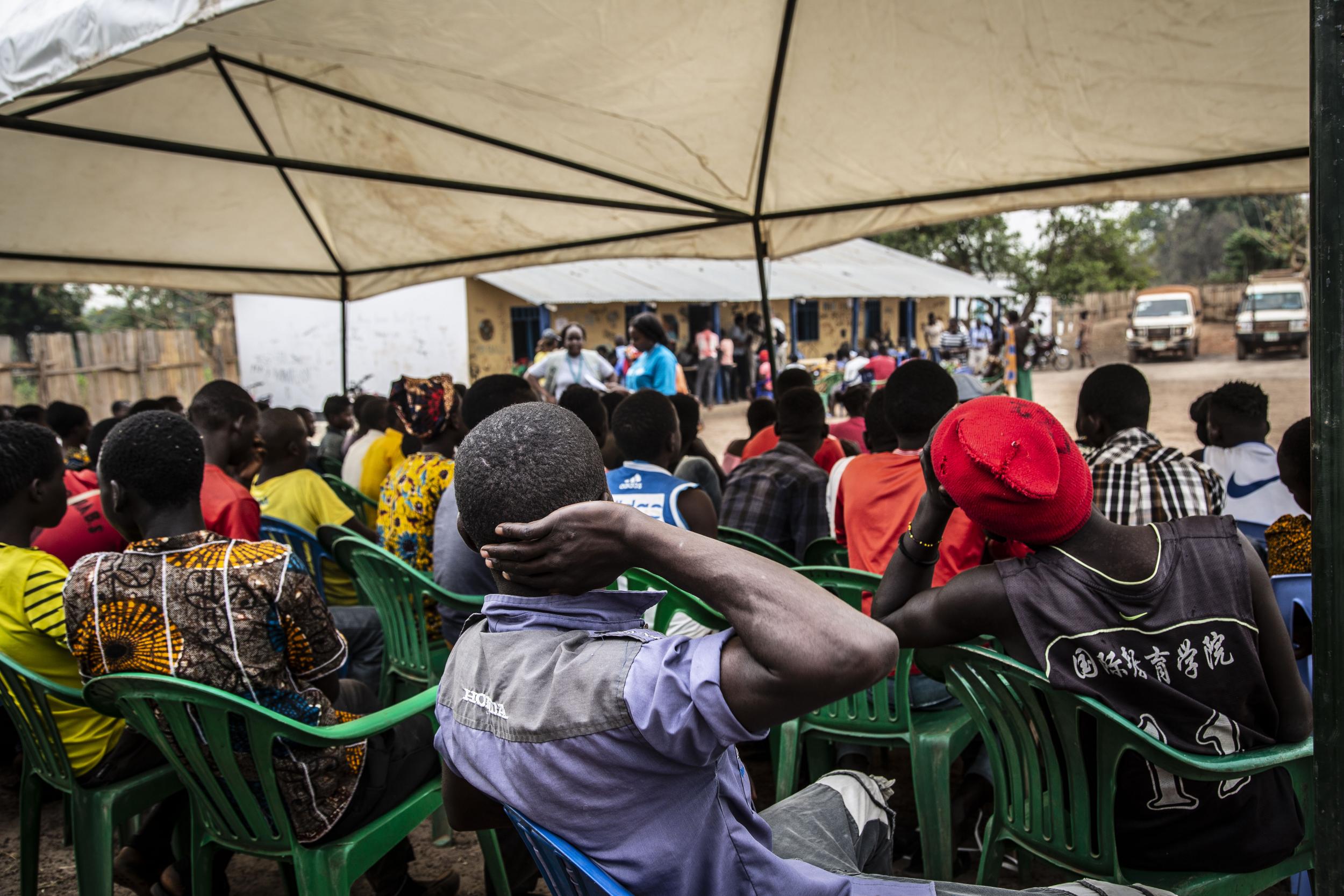
The traumatised children are often difficult to manage because of their violent pasts: they speak of suffering from angry outbursts and needing to use force.
Several say their local communities shunned them for the acts they were made to perform while in the army.
One 16-year-old boy, who was forced to execute captives in a firing squad, says he dropped out of school because he was afraid of what he might do to anyone who confronted him about his past.
The support from social workers is vital to help ease the tricky re-entry into civilian life.
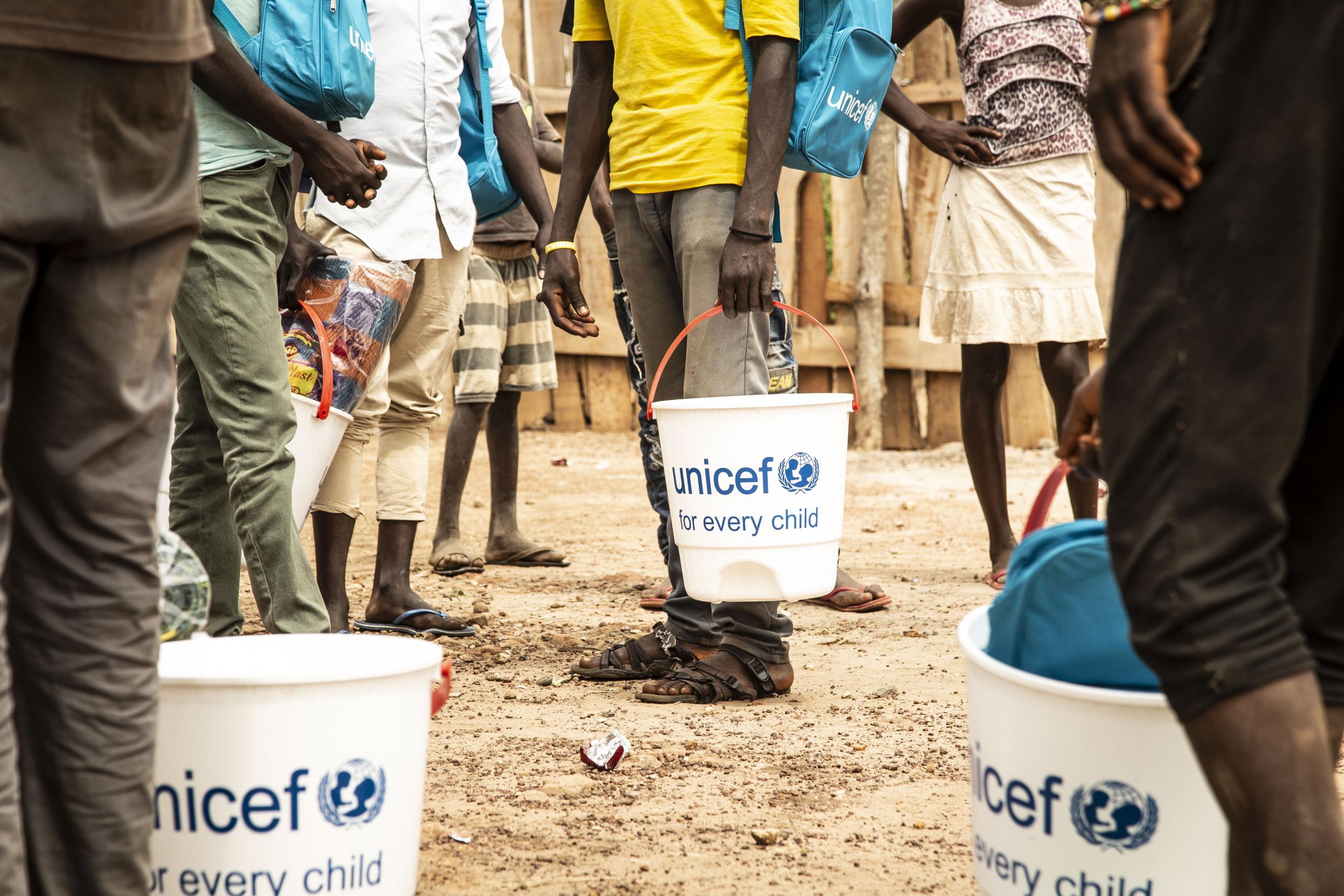
But the problem Unicef and its partners are facing is a lack of funds. Overall last year the humanitarian response for South Sudan was only two-thirds funded. In 2019 they actually need to reach more people and so need more money, yet targeted funding is $200m (£155m) less than last year’s projected $1.72bn.
One of the programmes impacted is the efforts to rehabilitate child soldiers.
“We can for sure see donor fatigue,” says Unicef’s Helene Sandbu Ryeng.
“If we don’t have money the programmes will stop.”
We can for sure see donor fatigue. If we don’t have the funds the programmes will stop
One 15-year-old girl, Martha, who was first captured by the SSLM two years ago, says she is regularly approached by children who want to return to the bush camps. She says she uses her own story to try to discourage them from leaving their families.
“Once a month, every couple of weeks girls come to me to ask how to go back. I tell them what happened to me,” she says.
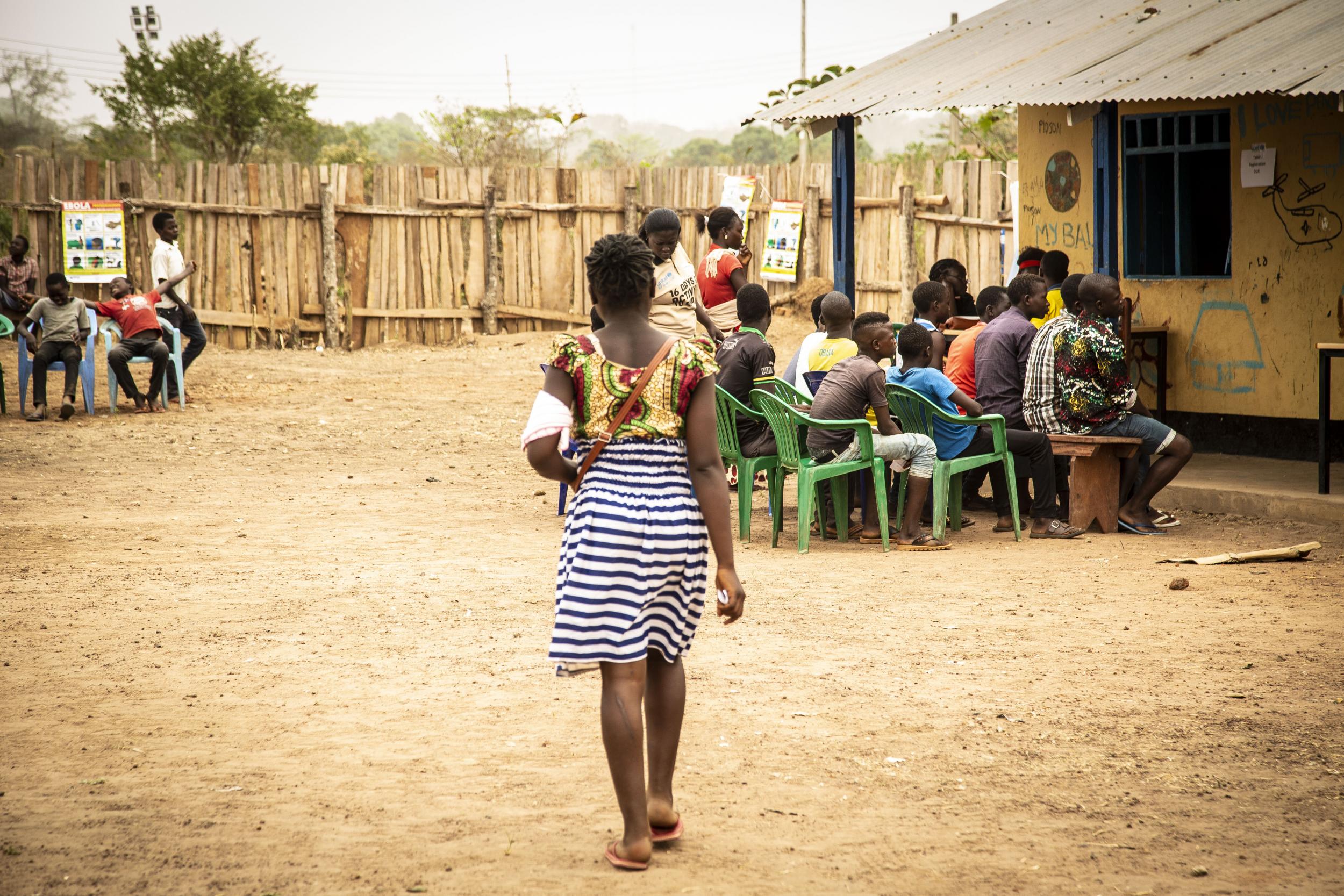
Martha was just 13 when she was captured by rebel forces while playing with her siblings by a bridge outside Yambio.
She was taken to the sprawling rebel camp where she joined hundreds of other teenage girls who slept outside and were put to work fetching firework, cooking and cleaning as well as being trained in weapons and sent on patrol.
The young and vulnerable girls were often preyed on by the fighters, who take their pick from the abductees as wives. In the Yambio playground, nearly all the teenage girls juggle new babies born during their years in the camp.
“We went to fetch water and these three men in their 20s with guns said if we didn’t have sex with them we would be killed,” Martha says with a matter-of-fact manner.
“That man had me for the entire year and even after I escaped he tried to find me,” she adds.
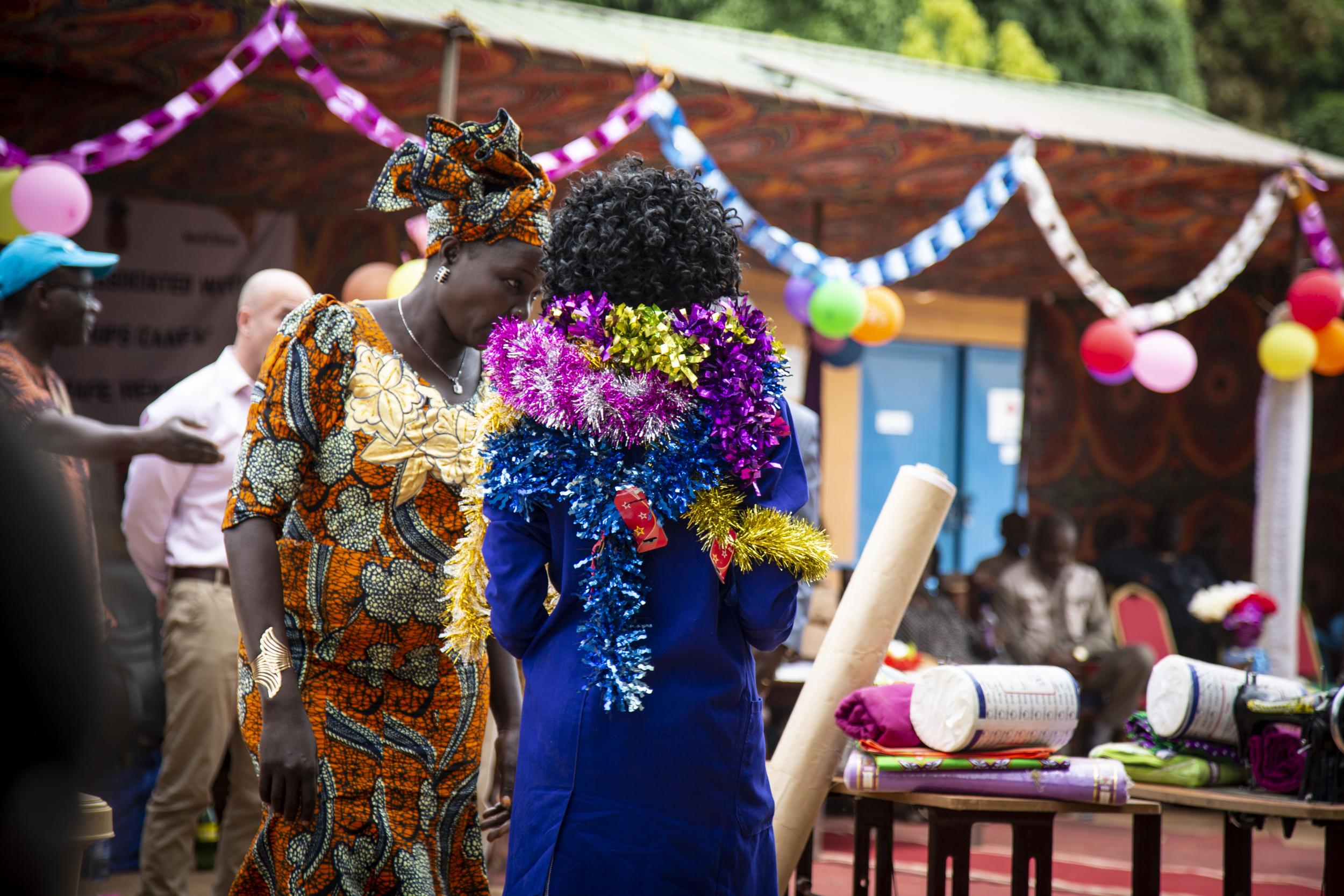
Another former girl soldier called Mary was abducted from her school aged 15. When she arrived in the camp she was “assigned” to a particular commander. In the camp she says the children were raped and given drugs to make it easier to commit the brutal acts they were ordered to do.
“After three months I got pregnant and so they sent me home to deliver – I never went back but it was hard, ” she says, explaining how she escaped.
She was later officially released and is two months into Unicef’s vocational programme to become a tailor. As she talks, her social worker, who checks in with her once a week, sits by her side.
I want to help other children escape and start a new life
At the end of the training she will be gifted a sewing machine which she hopes will mean she can look after her son who is disabled.
“I want to set up my own business and go back to school to support my son,” she says.
“One day I hope it will all better.”
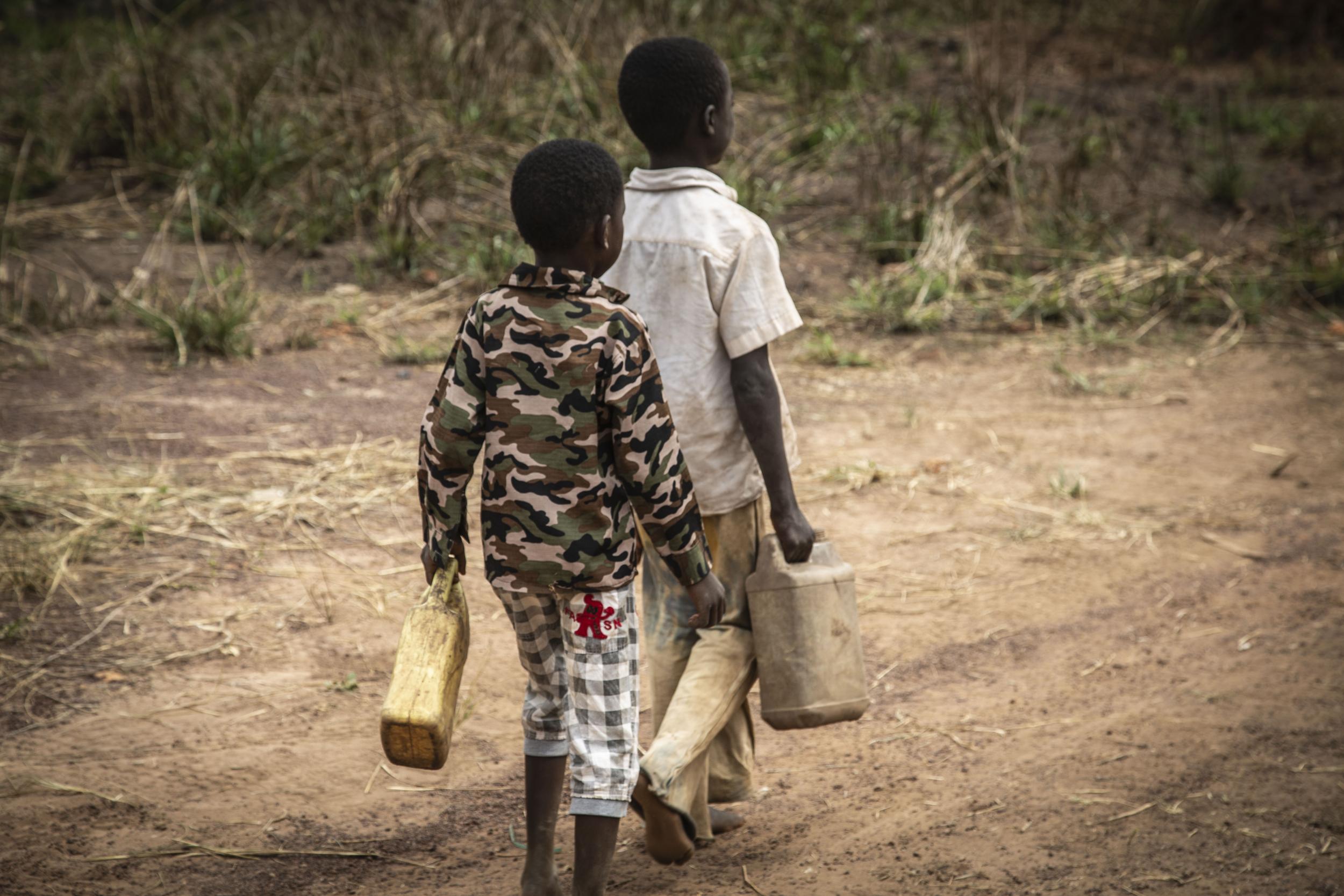
But a shadow hangs over the group, who have been through unspeakable violence.
Thomas talks about how hard it is “to be a little boy” and how he is shunned by the local community which fears he will brainwash other children.
“I get angry because of the bad things that happened to me in the bush. There are some people who don’t like me because I was with the military. They tell me they think I will spoil their children,” he says, kicking the dust on the dirt floor.
“But all I want to do now is go to school and get a job. I want to help other children escape and start a new life.”
Join our commenting forum
Join thought-provoking conversations, follow other Independent readers and see their replies
Comments
Bookmark popover
Removed from bookmarks